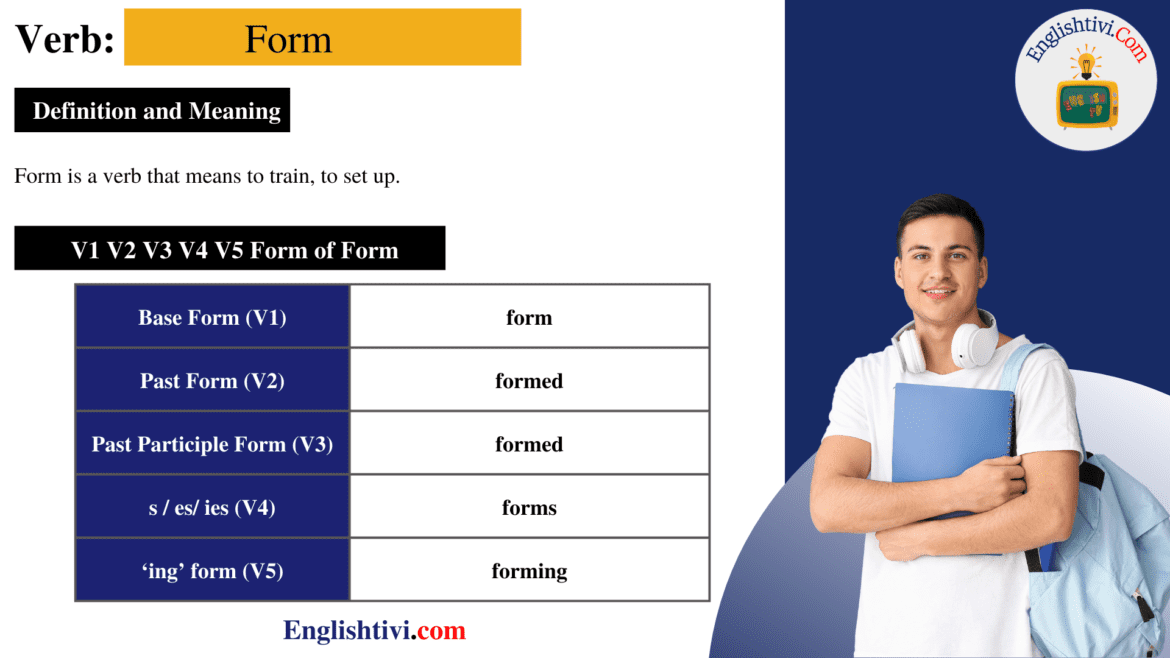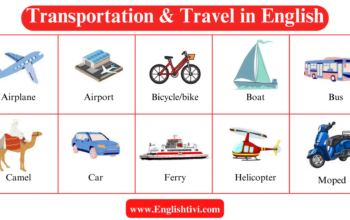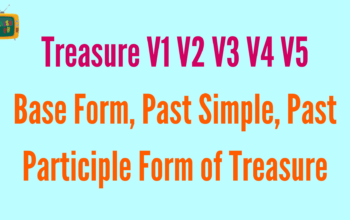Form V1 V2 V3 V4 V5 is one of the verbs that are used very commonly in English tests as well as in everyday communication. Also, because it’s an irregular verb, form doesn’t follow the regular rule. The verb “form” has five different forms: base form, past simple, past participle form, present perfect, and present perfect participle. So what is form‘s past? How do conjugate verbs with form verbs?
⏩ Sign Up to Get Bonus
Let’s find out with English tivi in the article below.
See more at: Verbs
Form of Definition and Meaning
Form is a verb that means to train, to set up.
V1 V2 V3 V4 V5 Form of Form
| Base Form (V1) | form |
| Past Form (V2) | formed |
| Past Participle Form (V3) | formed |
| s / es/ es (V4) | forms |
| ‘ing’ form (V5) | forming |
Form of Past Simple V2
The verb form is also employed in its V2 form as “formed”’. It is used to indicate the past tense in sentences.
Form of Past Participle V3
The V3 form is identical to the V2 form. The V3 form is “formed”. Formed is used in the past or present perfect tense.
+ In the present perfect tense, we use the word V1 as ‘have + formed‘ or ‘has + formed'.
- I, you, and we are used as ‘have + formed‘.
- ‘has + formed' is used for he, she, and it.
+ If you need to use the past perfect tense, use ‘had + formed‘ regardless of the subject.
You might also like: ALL the English Grammar Basics You Need
Conjugation of Form V1 V2 V3 V4 V5
| Conjugation table: Form | |||
| Number | Singular | ||
| Present Simple of form | I | You | She/He/It |
| form | form | forms | |
| Plural | |||
| We | You | They | |
| form | form | form | |
| Present Continuous of form | I | You | She/He/It |
| am forming | are forming | is forming | |
| Plural | |||
| We | You | They | |
| are forming | are forming | are forming | |
| Present Perfect of form | I | You | She/He/It |
| have formed | have formed | has formed | |
| Plural | |||
| We | You | They | |
| have formed | have formed | have formed | |
| Present Perfect Continuous of form | I | You | She/He/It |
| have been forming | have been forming | has been forming | |
| Plural | |||
| We | You | They | |
| have been forming | have been forming | have been forming | |
| Past Simple of form | I | You | She/He/It |
| formed | formed | formed | |
| Plural | |||
| We | You | They | |
| formed | formed | formed | |
| Past Continuous of form | I | You | She/He/It |
| was forming | were forming | was forming | |
| Plural | |||
| We | You | They | |
| were forming | were forming | were forming | |
| Past Perfect of form | I | You | She/He/It |
| had formed | had formed | had formed | |
| Plural | |||
| We | You | They | |
| had formed | had formed | had formed | |
| Past Perfect Continuous of form | I | You | She/He/It |
| had been forming | had been forming | had been forming | |
| Plural | |||
| We | You | They | |
| had been forming | had been forming | had been forming | |
| Future Simple of form | I | You | She/He/It |
| will/shall form | will/shall form | will/shall form | |
| Plural | |||
| We | You | They | |
| will/shall form | will/shall form | will/shall form | |
| Future Continuous of form | I | You | She/He/It |
| will/shall be forming | will/shall be forming | will/shall be forming | |
| Plural | |||
| We | You | They | |
| will/shall be forming | will/shall be forming | will/shall be forming | |
| Future Perfect of form | I | You | She/He/It |
| will/shall have formed | will/shall have formed | will/shall have formed | |
| Plural | |||
| We | You | They | |
| will/shall have formed | will/shall have formed | will/shall have formed | |
| Future Perfect Continuous of form | I | You | She/He/It |
| will/shall have been forming | will/shall have been forming | will/shall have been forming | |
| Plural | |||
| We | You | They | |
| will/shall have been forming | will/shall have been forming | will/shall have been forming | |
| Conditional Present of form | I | You | She/He/It |
| would form | would form | would form | |
| Plural | |||
| We | You | They | |
| would form | would form | would form | |
| Conditional Perfect of form | I | You | She/He/It |
| would have formed | would have formed | would have formed | |
| Plural | |||
| We | You | They | |
| would have formed | would have formed | would have formed | |
| Conditional Present Continuous of form | I | You | She/He/It |
| would be forming | would be forming | would be forming | |
| Plural | |||
| We | You | They | |
| would be forming | would be forming | would be forming | |
| Conditional Perfect Continuous of form | I | You | She/He/It |
| would have been forming | would have been forming | would have been forming | |
| Plural | |||
| We | You | They | |
| would have been forming | would have been forming | would have been forming | |
| Present Subjunctive of form | I | You | She/He/It |
| form | form | form | |
| Plural | |||
| We | You | They | |
| form | form | form | |
| Past Subjunctive of form | I | You | She/He/It |
| formed | formed | formed | |
| Plural | |||
| We | You | They | |
| formed | formed | formed | |
| Past Perfect Subjunctive of form | I | You | She/He/It |
| had formed | had formed | had formed | |
| Plural | |||
| We | You | They | |
| had formed | had formed | had formed | |
| Imperative of form | I | You | She/He/It |
| form | |||
| Plural | |||
| We | You | They | |
| Let’s form | form | ||
See more at: Vocabulary
Example Sentences with Form V1 V2 V3 V4 V5
In this section, we will learn about form sentence examples:
- She formed a little bowl out of the clay.
- At work, I had to train to be more assertive.
- Alex is forming a group of students.
- He has formed the company since his marriage.
Synonym Words For Form
Synonym of form word list. Here are a variety of words whose meaning is nearly the synonym of form:
- instruct
- school
- teach
- educate
- tutor
- coach
- prepare
- set up
- establish
- launch
- open
- start
Opposite Words For Form
The antonym of form word list. Here are some words that have nearly the opposite meaning as form:
- mislead
- confuse
- misinform
- baffle
- bewilder
- misguide
- perplex
- cease
- close
- end
- discontinue
- finish
- stop
You might also like: Best List of Irregular Verbs in English
Some Frequently Asked Questions About Form (Verb)
What is the V1 V2 V3 V4 V5 of form?
The past tense of form is formed. The third-person singular simple present indicative form of form is forms. The present participle of form is forming. The past participle of form is formed.
| Base Form (V1) | form |
| Past Form (V2) | formed |
| Past Participle Form (V3) | formed |
| s / es/ es (V4) | forms |
| ‘ing’ form (V5) | forming |
What is the V2 and V3 form of form?
+ The V2 and V3 form of form is “formed“.
What is the sentence of form?
What is the past tense V2 of form?
+ The past tense of form is “formed“.
What is the past participle V3 of form?
+ The past participle of form is “formed“.
What is the present participle V5 of form?
+ The present participle of form is “forming“.
Conclusion
Let’s learn with English TV the structure of the verb “Form V1 V2 V3 V4 V5“: Base Form, Past Simple, Present Continuous and Present Continuous and Present Continuous and Present Continuous forms. We wish you all the best of luck.
You should subscribe to the English TV YouTube channel if you want to learn more about the English language and improve your proficiency.





